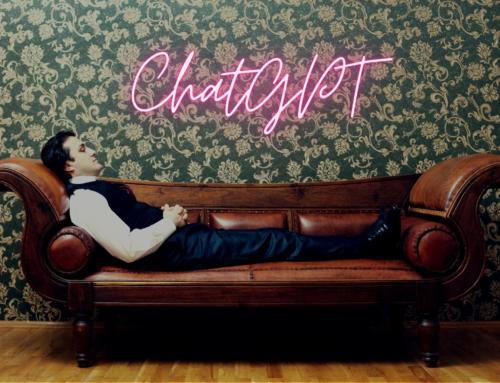Each year, I choose a theme for the books that I’m going to put on my reading list.
In 2018, I wanted to deepen my understanding of marketing and brand building. So, I read about the essence of marketing and how to understand what people want. I spent a lot of time learning from marketing professionals and books that focused on how to influence people.
Last year, I decided to focus on leaders.
Titans, to be exact.
I’m talking about those leaders–many of whom are CEOs–who built their companies during historical waves of innovation. They grew them into leadership positions in different markets. Ultimately, they did this so well that they are considered icons in the realm of CEO-dom.
I chose to specifically avoid those founders and CEOs from recent history–like Benioff, Zuckerberg, etc.–and looked into the legacy of titans for timeless plays.
One book I read is Titan by Ron Chernow. It’s about John D. Rockefeller Sr. (JDR).
I decided to read the book after reading the transcript of a Berkshire Hathaway stockholder’s meeting. During that meeting, Charlie Munger was asked a series of questions after his usual monologue.
“What are some great books to read?” said the gentlemen in the audience.
(Charlie is an avid reader. He apparently ingests 1-2 books a week.)
“…Well, if you’ve never read Titan by Ron Chernow, you should. I learned a lot from that book.” He replied.
I was surprised to hear Munger say that he learned a lot from a book about John D. Rockefeller, and so I decided to add it to my list.
(Interestingly enough, I was interested in reading about people from the Gilded Age after one summer I spent in Hudson Valley and visited the Roosevelt and the Vanderbilt estates. I learned a lot about that era and some of the incredible leadership and wealth that was built back then– the Vanderbilt’s, the Carnegie’s, etc.)
So, last year I read Titan slowly.
(Well, I still use my speed reading technique. I just put the book down often to digest my learning.)
As I read the book, I looked for timeless plays to improve my CEO game, leadership, and improve my skill set as an operator.
Charlie was right.
Titan is a treasure trove of solid advice on leadership habits, discipline, strategy, competitive dynamics, ethics, and philanthropy. I plan to continue to read and re-read the book this year and post my learnings.
(So, stay tuned.)
In addition to JDR, I read other memoirs from great leaders like Michelle Obama and Andy Grove. I opened up Pandora’s box of mental models and was inspired by one book about life choices that got me to take a fresh look at my career.
Here are my top reads of 2019:
Antifragile: Things that Gain from Disorder (Nassim Taleb) — Nassim has a way with words. In his own uniquely blunt and meandering way, he crafts a book that is about conquering disorder. He believes we are worried about the chaos because we are fragile. We focus all our energy on being resilient to disorder, trying to predict it, and perhaps even prevent it. Nassim, on the other hand, takes us on a different tack. He says, what if we accept that disorder cannot, in fact, be conquered at all. Instead, he wants us to embrace it and share his realization that the disorder’s purpose is to make us stronger.
This was eye-opening for me. Because as CEO, we often try to recover when sh*t happens. But, what if we got stronger with each bit of pain we experienced from our ventures. In fact, what if we could build teams that went beyond resilience? It inspired a multi-part series entitled, “Antifragile: Building a Company that Goes Beyond Resilience.”
“The concept of inverse thinking can help you with the challenge of making good decisions. The inverse of being right more is being wrong less.” — Gabriel Weinberg
Super Thinking: The Big Book of Mental Models (Gabriel Weinberg and Lauren McCann) — This husband and wife team does a fantastic job of creating a lifetime reference of mental models. It’s like weightlifting for the brain. Gabriel is the founder of DuckDuckGo (the web browser that doesn’t track you). He has been fascinated with mental models for some time. And, as he thought about how best to help his team grow as leaders and scale, he thought it best to teach them to make better decisions. And, to make better decisions, it turns out, is to build a latticework of multidisciplinary learning.
As Gabriel puts it, “. . . I’m really asking you to ignore jurisdictional boundaries. If you want to be a good thinker, you must develop a mind that can jump these boundaries. You don’t have to know it all. Just take in the best big ideas from all these disciplines. And it’s not that hard to do.”
I made it mandatory reading for everyone in my company.
As my super-bright friend and CTO wrote after he read it, “the thing is, the more models you can learn, and start to employ as instinct, the deeper you will understand the world.”
Range: Why Generalists Triumph in a Specialized World (David Epstein) — For years, I have been recommending Malcolm Gladwell’s work to young readers and young professionals alike. My first book, The Tipping Point, was an eye-opener for me, and I have been a fan ever since. About a decade ago, I held court with kids just about to head to college, and I shared the insights I gained from Malcolm’s seminal book—Outliers. I focused on the concept that 10,000 hours is the golden rule of mastery. And, mastery was key to a winning career.
David Epstein shattered that perspective.
My wife and I hosted our first book club with the same people—who were now young professionals—and worked to instill another idea. Specialization may be overrated.
I highly encourage this book as it helps answer a quintessential question: should my startup hire generalists or specialists? (I provide an unlikely answer here.) Also, surprisingly it made me take a closer look at my own career and what has made me successful.
“Habits are the compound interest of self-improvement. Getting 1 percent better every day.” — James Clear
Atomic Habits: An Easy & Proven Way to Build Good Habits & Break Bad Ones (James Clear) –Goals, metrics, strategy, without focus, is futile. I say it always—“as CEO, you must be laser-focused to be successful.” But developing the discipline to focus is actually harder than setting those lofty goals. In fact, it’s the right habits that lead to success and the goals are about how you think—thinking big is better.
James Clear makes this case and shares his lifelong recipe for being habits driven. “You rise to the level of your habits and fall to the level of your goals,” he explains in this easy to read book. Anyone looking for transformative advice on building the right habits should read it.
It has been a great one for me and often has me asking, “what are the right habits?”
Becoming (Michelle Obama) — I believe that everyone on Earth has a life story that is not just a linear fairy tale with a straightforward beginning and end. Instead, it is a mosaic of mini-stories that come together to create a masterpiece like the work of Antoni Gaudi.
When I opened my copy of Michelle Obama’s book Becoming, I half expected a personal retrospective wrapped in a thinly veiled announcement to run for president in 2020. Instead, what I got was a gift. Becoming is a breathtaking memoir of the most iconic women of my lifetime. (It inspired me to write a full book review here.)
Swimming Across (Andy S. Grove) — Nearly twenty-five years ago, I met one of the greatest leaders, in my opinion, to have walked the tech world–the first CEO of Intel, Andy Grove.
After escaping communist-controlled Hungary, Andy Grove moved from New York City to Santa Clara Valley to change the world for good. He and his colleagues Gordon Moore (creator of Moore’s law) and Robert Noyce (Fairchild semiconductors) went on to co-found the best known for the “bong” and being inside just about everything electronic.
For a quarter of a century, Intel—under Andy’s leadership—shaped the world of computing and continues to do so today. But, little is known about his origins. In addition to being a brilliant scientist and business leader, he was an excellent writer and teacher.
In this memoir, he tells us a gripping story about his origins that is so full of life lessons, I can’t begin to share them here. He survived World War II, disease, cancer, to “swim across” to the Americas and to become a symbol of what it takes to be an entrepreneur.
“Becoming is never giving up on the idea that there is more growing to be done” — Michelle Obama
Superpower: One Man’s Quest to Transform American Energy (Michael Skelly) – Michael Skelly is one man. He is a man with a penchant for doing hard things. Grit does not suffice to describe what one experiences when reading this story about his attempt to transform American energy. I currently run an energy company–that is also a computing company–that aims to make renewable energy the superpower in the world. The last two years have been so grueling that I have sought out examples of others who’ve come before me–hoping to learn.
Michael’s story in Superpower is like striking gold.
From the first page to the end, I was: educated about what it takes to build a global energy company, reminded of what it’s like to start from scratch again, and force yourself to shoot for the stars.
And, the book taught me how to fail, yet still, succeed.
You don’t have to be in the energy business to read this story that is part silicon valley and part memoir. (Pair it with this podcast episode – where I interview the daring subject of the book.)
Other books I read last year include:
- Algorithms to Live By (mental models)
- Myth of Freedom (meditation)
- Millionaire Next Door
- The Great Mental Models (mental models)
- The Culture Code (the science behind great cultures and teams)
- Traction (how any startup can get traction)
- High Growth Handbook (sage advice on being the leader of a high-growth company)
- Bitcoin Billionaires (a gripping story that is a sequel to the “social network”)
- The Boron Letters (solid copywriting advice)
- Wool (fiction)
- The Nimrod Flipout (fiction)


